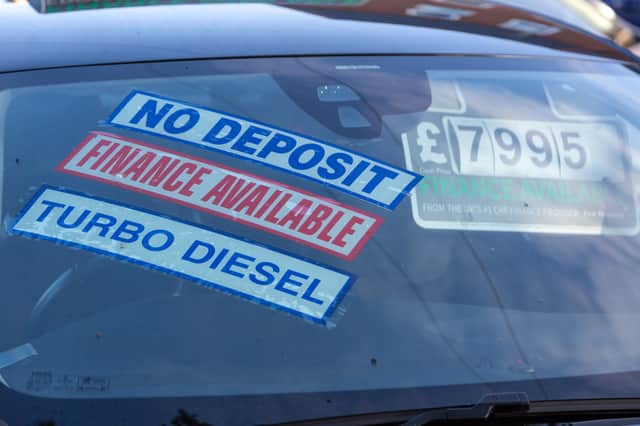Used diesel cars disappearing from sale as ULEZ expansion sees supply plummet in parts of UK


The proportion of used diesel cars for sale has plummeted by up to 44% in some parts of the country as drivers turn their backs on the fuel.
New data from used car marketplace AA Cars shows that the supply of diesel vehicles is falling in many major towns and cities, with the impact of clean air or low emissions zones thought to be contributing to the decline.
Advertisement
Hide AdAdvertisement
Hide AdThe sharpest drops were recorded in Brentford and Croydon in outer London, both of which will fall into the capital’s expanded Ultra Low Emission Zone (ULEZ) in August. A year ago, nearly two in five (36%) used cars for sale in Brentford were diesel models. That has now shrunk to just a fifth - a decline of 44%. Meanwhile, the share of used diesels for sale in Croydon has fallen by almost a third (31%), from 32% to 22%.
Under the London ULEZ rules, older diesels which don’t meet Euro 6 emissions standards - generally pre-2016 - are liable for a £12.50 daily charge for entering the zone, which will cover the whole of Greater London from late August. Similar restrictions apply in Glasgow, Bristol and Birmingham and are coming into force in other UK cities on coming years.
The analysis by AA Cars, which covered 89 of the largest towns and cities in the UK, found that the proportion of second-hand diesels for sale had only increased in six places - Leeds, Derby, Milton Keynes, Plymouth, Romford, Exeter and Cheltenham.
Hinckley in Leicestershire had the highest proportion of diesel cars in its second-hand showrooms, with diesels accounting for 63% of used cars for sale. However, even there, diesels’ market share fell by 6% over the past year.
Advertisement
Hide AdAdvertisement
Hide AdIn the early 2000s drivers were encouraged to switch to diesel thanks to their better economy and lower CO2 emissions compared with petrol. However, in the wake of the Dieselgate scandal and as concerns grow over other emissions, such as nitrogen oxides, diesel cars have rapidly fallen out of favour.
Government figures show that after peaking in 2016, diesel car registrations fell by 91% by the start of 2022. The latest data from the SMMT shows that in June, diesel accounted for just 3.2% of new car registrations - down from 5.7% in June 2022 - and well behind electric cars, which accounted for 18% of the new car market.


Mark Oakley, director of AA Cars said there could be a number of factors leading to the falling supply of used diesel cars. He commented: “With the upcoming ULEZ expansion in London and the nationwide 2030 ban on the sale of new petrol and diesel cars looming, many drivers are thinking long-term and considering the changing landscape when shopping for their next car.
“As production and sales of new diesels fall, the number of nearly new models coming onto the used market will slowly follow suit. It’s early days, but this trend is already apparent on forecourts across the country - most noticeably in Brentford where our research reveals that used diesels’ market share fell by 44% in just a year.
Advertisement
Hide AdAdvertisement
Hide Ad“The falling number of diesels appearing on forecourts could be because of significant production shortages over recent years, or owners holding onto their cars for longer.
“Meanwhile, attitudes towards electric vehicles are shifting, as buyers and dealers focus on greener alternatives. EVs still account for only a small proportion of total used car sales but this is starting to change as more stock comes on stream.”
Figures from the SMMT shows that while EVs accounted for just 1.4% of the used car market in the first quarter of 2023, that was a 55.5% increase on the same period in 2022. Sales of new EVs are also continuing to climb, which will gradually feed into the second-hand market.
Comment Guidelines
National World encourages reader discussion on our stories. User feedback, insights and back-and-forth exchanges add a rich layer of context to reporting. Please review our Community Guidelines before commenting.
